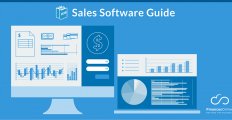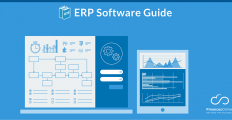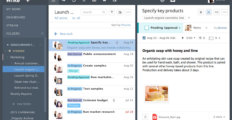Do you recall the days when installing a new program on your desktop involved using a CD-ROM or a floppy disk? Now, envision the elaborate process that large companies and corporations had to undergo to install extensive software and hardware when acquiring new technology.
We’re referring to outdated systems with substantial fees, extensive on-site installation periods, and subsequent training sessions, only to realize they disliked the system later on, after investing significant time and money in its installation. Introducing Hotel Software as a Service, the future of the hospitality industry.
Software technology has revolutionized due to the widespread availability of internet access worldwide. With the rise of cloud computing, hotel SaaS now offers hotels a contemporary, user-friendly, and notably cost-effective method of integrating technology into their operations. Here is how SaaS is shaping the future of hospitality.

Continuously Adapting
SaaS providers are consistently enhancing their products through the addition of new integrations, the introduction of fresh features, and the provision of bug fixes, all without any additional charges to you. The emphasis on integrations and marketing is pivotal as they enable seamless communication between your systems and other critical components in your technology stack, often at minimal to no extra cost.
Their capacity for continual adaptation means that many hotels can tailor their systems to suit their specific requirements, offering scalable solutions. Hotel SaaS platforms are far from being one-dimensional; this marks a notable departure from the static nature of traditional legacy systems that were typically developed once and then left unchanged over time.
Low Cost
Hotel SaaS functions solely with an internet connection, making it straightforward. Operating on a subscription-based pricing model, SaaS eliminates the need for costly licensing fees. Previously, hotels had to buy the system and invest in constructing and upkeeping the necessary IT infrastructure to sustain the software.
Over time, these annual costs could exceed six figures. The affordable starting point of hotel SaaS enables establishments of all sizes to discover a software solution that aligns with their requirements. If you are looking for software for bed and breakfast, boutique hotels, hostels and hotel chains, SaaS platforms offer tailored solutions with the added benefit of scalability. As a result, hoteliers can invest more of their budget into improving guest experiences, rather than allocating a large portion towards software and hardware expenses.
Enhancing Operational Efficiency
Handling operations in the hospitality sector has consistently presented challenges, proving to be a demanding task even in the best of circumstances. Travel agents have often faced difficulties in promptly securing real-time destination availability without the need for direct communication with the destination provider.
SaaS business models, such as the global distribution system, have significantly enhanced booking processes, negating the requirement for hotels to provide access or disclose sensitive data. This specific SaaS initiative has further streamlined operations, enabling agents to facilitate every aspect of a traveler’s journey, encompassing accommodations, airfares, ground transportation, using AI and tours. The growth of this hotel channel manager is set to continue thriving as hospitality businesses worldwide gain increased connectivity to clients and vice versa.
Scalability
Fundamental pillars of every e-commerce enterprise encompass the scalability and dependability of its online platform. Whenever a travel firm presents a new promotional deal or discount with a limited timeframe, the surge in website traffic can strain its infrastructure, impacting both revenue and operational reliability for maintaining a seamless user experience.
Through the adoption of Software as a Service (SaaS) solutions, hospitality establishments achieve the required instant scalability for their infrastructure. This empowers them to expand a SaaS-operated website during promotional periods and realize cost efficiencies by scaling down infrastructure components afterward.
Elevating Your Business with a Mobile-first Approach
SaaS tools have traditionally been crafted for desktop utility. However, being tied to our desks constantly is impractical, especially in the realm of hospitality management. A hospitality manager must possess a diverse skill set, managing both operations and customer interactions at the front desk. Given their constant mobility, managers require technology that can keep pace with their on-the-go responsibilities.
The rise of mobile-first SaaS solutions is reshaping the managerial landscape, providing flexibility by granting access to vital data and information when needed. These solutions enhance the responsiveness and attentiveness of the hospitality industry to customer and business demands, expediting processes. Additionally, intelligent dashboards and digital workspaces facilitate seamless team communication, regardless of location.
Enabling Small Scale Enterprises
Software as a Service (SaaS) models have eliminated the necessity for small businesses to engage specialized talent in particular areas. Many hospitality enterprises face challenges with growth during their initial phases. Balancing operations, marketing, and sales initiatives is a constant struggle that can become overwhelming. Fortunately, SaaS has come to the rescue, enabling small travel business proprietors to seize control of their endeavors effortlessly.
The era where hotel owners had to depend on external booking platforms to market their accommodations is a thing of the past. Today, the hospitality sector can wield complete authority over their booking systems, if they so choose.
Entrepreneurs can create a vacation rental website using intelligent SaaS platforms that do not demand extensive coding expertise to develop a functional and aesthetically pleasing platform for customers to utilize. Saas is also helping in future of real estate.
These vacation rental websites offer hospitality businesses the sustainability needed to begin investing in their website and corporate credibility. Instead of directing paid advertising efforts towards booking behemoths like booking.com or Airbnb, they can direct traffic to their own site. This self-owned traffic will provide valuable insights into campaign performance, customer interactions, and enable them to adjust future sales strategies with a more data-driven approach.
Accelerated Content Distribution
Modern customers anticipate speedier page loading and download times. When preparing for their trips, they browse through a variety of images and videos shared by service providers and fellow travelers. Lengthy delays in streaming or downloading large media files can lead to a subpar website experience.
The solution to this issue is provided by Content Delivery Networks (CDNs) from SaaS providers. CDN solutions work to decrease download times, allowing travel companies to expand their customer reach across different locations.
Accelerating the Recruitment Process
Recruiting has perpetually posed challenges, particularly within sectors characterized by pronounced seasonality like the hospitality industry. This sector often faces the urgent need to swiftly hire significant numbers of personnel to meet the demands of tourism.
Conducting a large number of interviews promptly and in person proves to be a logistical challenge in many instances, bordering on impracticality. Software as a service solutions are increasingly aiding recruitment processes globally. While Zoom stands out as a prominent tool for conducting remote interviews, the evolution of recruitment technology doesn’t end there. More comprehensive tools now exist to streamline candidate management, track application progress, and facilitate seamless onboarding processes.
Monitoring Room Occupancy and Return on Investment Instantly
SaaS platforms are now focusing on helping hotels with specific data. This means hotels can easily track how full they are, how happy their customers are, all in one place. This new way of looking at data will help hotels understand their customers better, predict future trends, improve based on feedback, and stay ahead by keeping an eye on their competitors.
Products like this can gather all the key performance indicators (KPIs) for a hotel in one convenient location. This helps teams and managers see how well they are doing, keep everything in one reliable place, and track the hotel’s performance easily.
Endnote
As cloud and SaaS technologies progress, they will enable businesses to overcome more challenges and enhance traveler experiences. Companies today are also turning to machine learning to enhance their service offerings. With the automation of model designs in the cloud, even new travel companies with limited data analytics expertise can leverage machine learning to gain a competitive edge. This allows them to manage rates and revenue more cost-effectively.























Leave a comment!